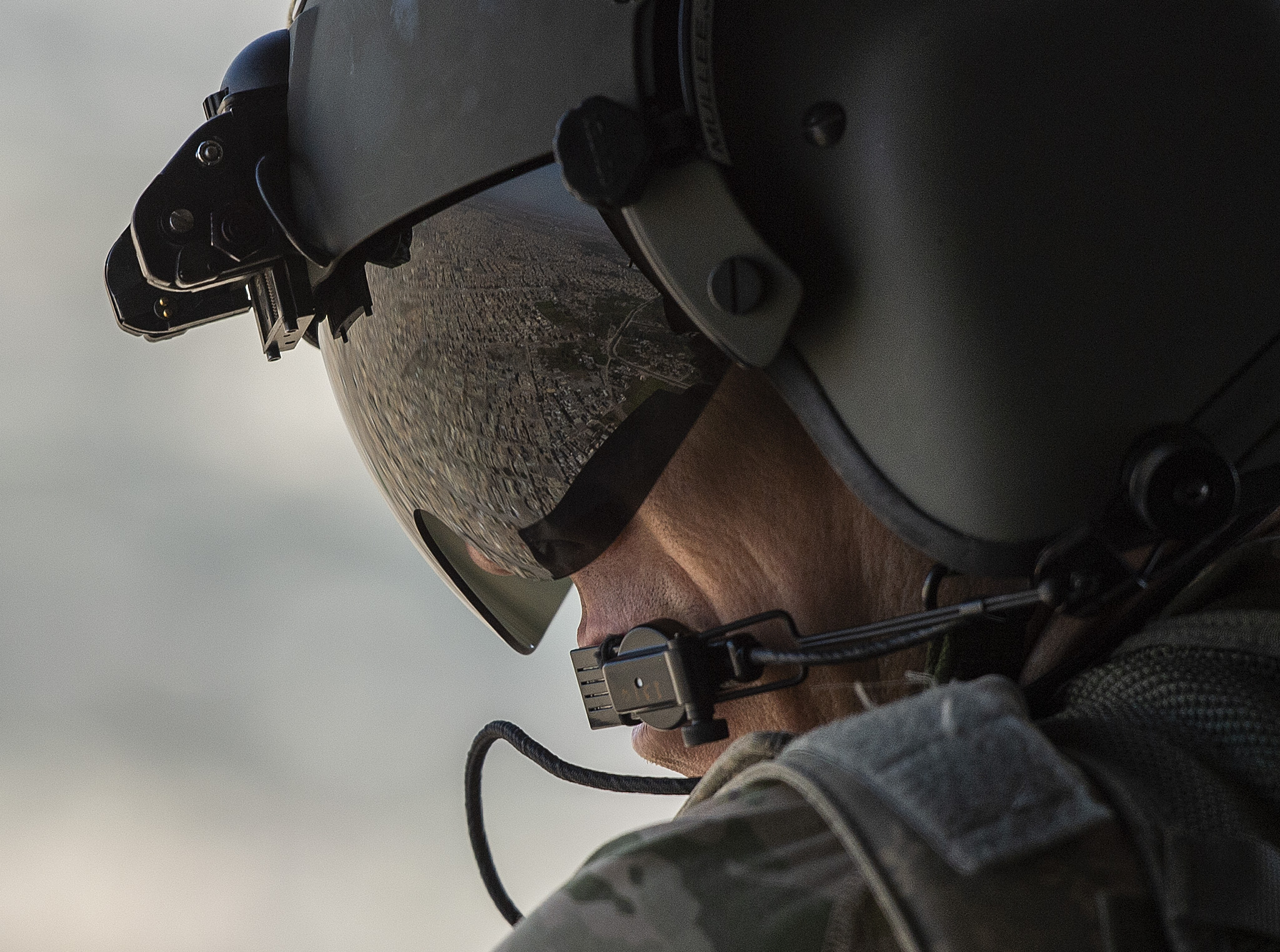U.S. Troops Are Withdrawing From Iraq. Washington Should Continue Until It Hits Zero
According to Centcom, the U.S. force presence in Iraq is scheduled to decrease by a third come November, when U.S. forces will be reduced from the current 5,200 to about 3,000. It’s a decision that comes after several rounds of base handover to the Iraqi security forces this year.
While this news is a promising start, Washington should continue to downsize until it reaches zero combat troops in Iraq. Such a withdrawal will produce inevitable protests from those who believe a permanent U.S. military presence is intrinsically connected to regional stability, but caving to these all-too-familiar cries would tie thousands of U.S. soldiers to an indefinite deployment in the Middle East.
There are several reasons why a full U.S. withdrawal from Iraq is the wisest course of action.
First, ISIS is degraded to such an extent that Iraqi security forces are capable of handling counterterrorism operations against the group on their own. Granted, ISIS still retains the capacity to conduct terrorist attacks in Iraq, particularly in areas of the country centered in the north and northwest that have challenging terrain and demographics, a complicated relationship with Baghdad, and poor Iraqi government services. As articulated by the inspector general of the counter-ISIS campaign, there are also concerns among U.S. and coalition officials of ISIS exploiting the adversarial relationship and lack of security coordination between Baghdad and the Kurdistan Regional Government, two entities whose long, acrimonious history and unresolved territorial disputes continue to hamper mop-up operations in Diyala province.
These operations, however, can best be categorized as low-grade assaults against exposed targets of opportunity such as Iraqi army convoys, static checkpoints, farms and small villages with minimal geostrategic relevance to the organization at large. The U.N. Monitoring Team on ISIS and Al-Qaeda reported in its July assessment that ISIS militants are relegated to a rural insurgency against a more professional and experienced Iraqi military. The major, coordinated offensives the world frequently associated with ISIS in 2014 and 2015 (think of the June 2014 thrust into Mosul or the April 2015 capture of Ramada) are simply not possible for today’s scattered adherents of ISIS. Iraqi Sunnis in the north and east who lived under the group’s brutal domain for years have no intention of being sucked back in. While they may have no love for the government in Baghdad, they don’t see the re-emergence of a caliphate as an especially promising alternative.
Second, the Iraqi security forces have demonstrated far more capability on the ground today than they did even a year earlier. In an interview with the Associated Press in August, Iraqi Prime Minister Mustafa al-Kadhimi said Iraq no longer needed direct military support from the U.S.-led coalition. General Kenneth McKenzie, the top U.S. commander in the Middle East, appears to agree with the prime minister; the Iraqis, McKenzie said, have exhibited the ability to keep the military pressure on ISIS. A five-year campaign of U.S. airstrikes has not only pummeled the group and taken out key leaders in their ranks, but has also given Baghdad the time to improve its own military capability in order to continue the fight on its own. If additional coalition training and advising is required, other members of the U.S.-led -coalition can step up and perform those functions.
Lastly, the costs of a long-term U.S. military contingent in Iraq cannot be ignored or downplayed. Over the last seven months, American soldiers have been on the receiving end of numerous rounds of rocket fire from Iran-supported militias. U.S. military officials have counted 26 rocket attacks between January and June. Some of those attacks resulted in U.S. casualties, including a January Iranian missile strike launched in retaliation for the U.S. killing of Iranian General Qassem Soleimani. Two U.S. troops and one British service member were killed in March when 18 rockets landed on the al-Taji military base. Three days later, an additional three coalition soldiers were injured after 30 rockets were aimed at the same facility. Just last month, the Iraqi army prevented a similar incident in the Rashidya neighborhood north of Baghdad.

Every additional day U.S. service members remain in Iraq is one more day Americans in uniform are at risk of being killed or grievously wounded by an inbound rocket. If such a risk were necessary to preserve U.S. power in the Middle East, the American people would likely support such a long-term presence. But Iraq, a nation that has been etched in the minds of Americans across five consecutive U.S. presidents, hardly qualifies. The fact that nearly three-quarters of Americans want to bring U.S. troops home from Iraq, according to a poll by YouGov for the Charles Koch Institute, is a vivid testament to the public’s desire to leave Iraq’s problems to the Iraqis. We must refocus U.S. resources on more important priorities, like increasing America’s economic strength and ensuring U.S. interests in Asia are protected.
In Iraq, the U.S. military has done all it can. The Trump administration’s decision to cut the U.S. troop level to 3,000 is a good step in the right direction. But it shouldn’t stop Washington from listening to its constituents and proceeding toward a full withdrawal.
The views expressed in this article do not necessarily reflect the views and editorial stance of the SOHR.
Source: U.S. Troops Are Withdrawing From Iraq. Washington Should Continue Until It Hits Zero | Opinion

